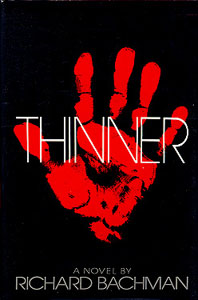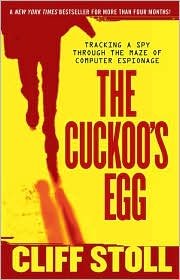Early in my teaching career, a student handed in a composition that blew my socks off. It was by far the best work she produced all year, and the next day, I read it to the rest of the class. The day after that, three different female classmates all showed up with the same essay...copied from Judith Viorst in Redbook. I gave the writer the choice of writing another paper and taking a low grade for its lateness, or taking an outright zero. She wrote another paper, nowhere near as brilliant.
Years later, when I was more in touch with the student grapevine, I taught two senior English classes of "Low-level" students. That's EdSpeak for "Seriously challenged." Most of those 18-year-olds read at about sixth-grade level. Occasionally, someone would hand in a paper with brilliant imagery or a sophisticated extended metaphor. By then, the Internet existed, so I would type a particularly vivid line into the search field and find a rap lyric or hip-hop song on the first hit. After several months of calling kids out, I found fewer and fewer offenses. The word got around that the old guy in Room 240 had phat street cred, yo.
Imitation may be the sincerest form of flattery, but it can come back to bite you. Copiers abound, some of the cases blatant to the verge of slapstick, but some more subtle.
We all know about Melania Trump's stealing from Michelle Obama's speech to nominate her husband (Because Barrack Obama and Donald Trump have so much in common, I guess).
Bob Dylan--long accused of recycling any lyric or lick that wasn't nailed down--allegedly stole part of his Nobel Prize acceptance speech from the SparkNotes summary of Moby Dick. Joni Mitchell is only one of many who say Bob is the embodiment of the old dictum that if you steal from one person, it's plagiarism, but if you steal from everyone, it's research.
Dan Brown faced charges of stealing ideas from another novel for The Da Vinci Code, and J.K. Rowling encountered similar charges for elements in the Harry Potter series. J.R.R. Tolkien was accused of stealing elements of the Lord of the Rings from Wagner's Ring Cycle. This one strikes me as frivolous because, if you can't use the template for the Hero's Journey, most myths are off the table and Hollywood would be even more bereft of ideas than it seems already. So would novelists who use the same template.
Emma Cline published The Girls in 2017, and her ex-boyfriend claimed she stole his emails for material. She denied it, but did admit to selling him a computer on which she had installed spyware, but only to find out if he was cheating on her. Really.
In the spirit of full disclosure, I used Literary Hub and Powered by Orange for lots of the information I'm passing on here...
Bob Dylan isn't the only musician to recycle, of course. Many early rock and roll acts used riffs or lyrics from earlier songs and even from each other. Some lines appear in many blues songs, and some rock riffs are part of the vocabulary because everyone uses them. Chuck Berry modified figures from Robert Johnson, Elmore James and several other blues poineers, and they were picked up by the Rolling Stones, the Beach Boys, the Beatles, and almost anyone who has plugged in since then.
Some borrowing is too blatant, though. Led Zeppelin shares writing credit with Chester Burnett ("Howlin' Wolf") for "The Lemon Song," which Burnett recorded years earlier with similar lyrics as "Killin' Floor."
In one of the most astonishing verdicts ever, Led Zepp was acquitted of stealing the introduction of "Stairway to Heaven" from Spirit's earlier "Taurus." The two bands toured together, and the members of Spirit claimed that Jimmy Page copied Randy California's guitar part note-for-note. In Page's defense, I've heard that he couldn't read music, which meant he had to have a fantastic memory. He might have remembered the notes and not realized he was copying.
No, I don't buy it either. Listen to Spirit's song on YouTube, beginning about 45 seconds in, and decide for yourself. Zepp also now shares writing credit with Memphis Minnie for "When the Levee Breaks." "Dazed and Confused" appears on Led Zeppelin II, but first surfaced on a late Yardbirds album as a reworking of a song written and performed by Jake Holmes.
The Rolling Stones usually gave credit to the people whose songs they covered: Muddy Waters, Howlin' Wolf, Chuck Berry, Buddy Holly, Otis Redding, et al. The Let It Bleed LP correctly credits Robert Johson with writing "Love In Vain," but a two-volume collection of Rolling Stones songs published in 1980 gives the byline to Mick Jagger and Keith Richards.
Oops. "Gaucho" bears the byline Donald Fagen, Walter Becker and Keith Jarrett because the first two used a Jarrett piano line for their Steely Dan recording.
My favorite music story concerns George Harrison's "My Sweet Lord." He paid $400,000 for "unintentionally" copying the three-note figure from "He's So Fine" by the Chiffons. I don't think three notes is enough to call it copying, but maybe that's just me. I don't hear the copying, either. In any case, years later, Harrison purchased the publishing company that held the rights to "He's So Fine." Not long after that, the Chiffons recored a cover version of "My Sweet Lord."
What goes around, comes around...









